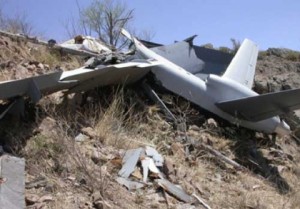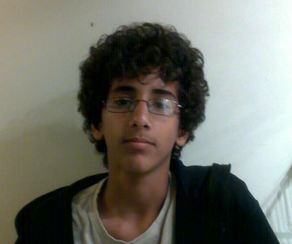Abdulelah Haider Shaye and Anwar al-Awlaki’s Emails
Al-Jazeera did another long piece on the imprisonment of Abdulelah Haider Shaye, whose story Jeremy Scahill first covered here. There are two details worth note. First, just after 15:40, AJE describes the White House’s non-denial denial of their involvement with Shaye’s continued imprisonment.
Well, we got in touch with the White House on this last week, and this is what we were told: “The President’s comments have absolutely nothing to do with Shaye’s reporting or his criticism of Yemen or the United States. A Yemeni court, not a US court, convicted him.”
It’s an odd comment because if, as alleged, Shaye’s imprisonment has something to do with being an AQAP propagandist, then it would have to do with his journalism. Furthermore, given the language the White House itself included in its readout of the February 2, 2011 conversation between President Obama and Ali Abdullah Saleh…
President Obama called President Ali Abdullah Saleh of Yemen on February 2 to welcome the significant reform measures that President Saleh had announced earlier that day, and to stress that President Saleh now needs to follow-up his pledge with concrete actions. President Obama asked that Yemeni security forces show restraint and refrain from violence against Yemeni demonstrators who are exercising their right to free association, assembly, and speech. The President also told President Saleh that it is imperative that Yemen take forceful action against Al Qaida in the Arabian Peninsula (AQAP) to protect innocent lives in Yemen as well as abroad. Finally, President Obama expressed concern over the release of Abd-Ilah al-Shai, who had been sentenced to five years in prison for his association with AQAP. President Saleh thanked the President for U.S. support and committed to continuing and strengthening relations with the United States. [my emphasis]
… It’s quite clear that regardless of whose courts convicted Shaye, Obama’s comments played a key role in his continued imprisonment.
The irony? In the same conversation Obama pressured Saleh to show restraint with Yemenis exercising their right to speech. So now the White House is issuing non-denial denials about a conversation in which they criticized Saleh for his violent repression by attributing responsibility to Yemen’s legal system?
Nevertheless, I find it significant that, rather than offer some explanation for Obama’s pressure to keep Shaye imprisoned, the White House is now dodging the issue.
Particularly given this detail Scahill reveals just after 20:00.
What I’m going to say right now about it is the extent of what I can say about any specific media organization. My understanding from sources within one of those media organizations [ABC, WaPo, and NYT] that you cited, and a major American media organization, was that they were approached by the US government earlier on, before Shaye was actually locked up and put in prison and sentenced by this court, that a major US media organization that had done work with him was approached and told that they should stop working with him, suggesting that his relationship to Al Qaeda was more than just journalist source relationship and that organization stopped working with Abdulelah Haider. To my knowledge, none of those organizations have take an editorial stance calling for his release or even or even condemning the sham nature of his trial.
That is, presumably around the time ABC and WaPo and NYT were all relying on Shaye to get reporting from Yemen, the government approached at least one of them and told them to stop, which they did.
I find that particularly interesting given some reporting I reviewed yesterday while working on posts assessing whether the new NCTC data-sharing guidelines would have prevented the Nidal Hasan and Undiebomber attacks.
On November 16, 2009, 11 days after Nidal Hasan’s attack and about a week after Pete Hoekstra revealed the email exchanges, the WaPo published a story based on a Shaye interview with Anwar al-Awlaki which provides far more information about the emails Awlaki exchanged with Hasan before the attack.
Shaea allowed a Post reporter to view a video recording of a man who closely resembles pictures of Aulaqi sitting in front of his laptop computer reading the e-mails, and to hear an audiotape in which a man, who like Aulaqi speaks English with an American accent, discusses his e-mail correspondence with Hasan.
The quotes in this article are based on Shaea’s handwritten notes. Shaea said he was allowed to review the e-mails between Hasan and Aulaqi, but they were not provided to The Post.


